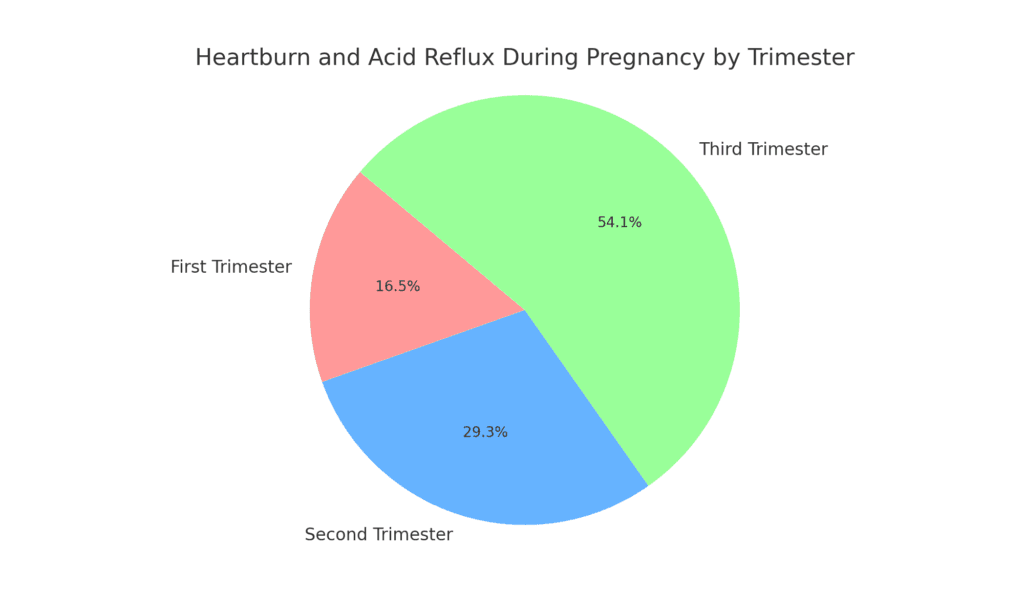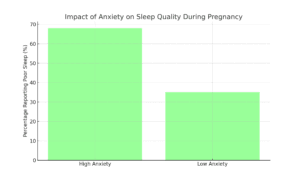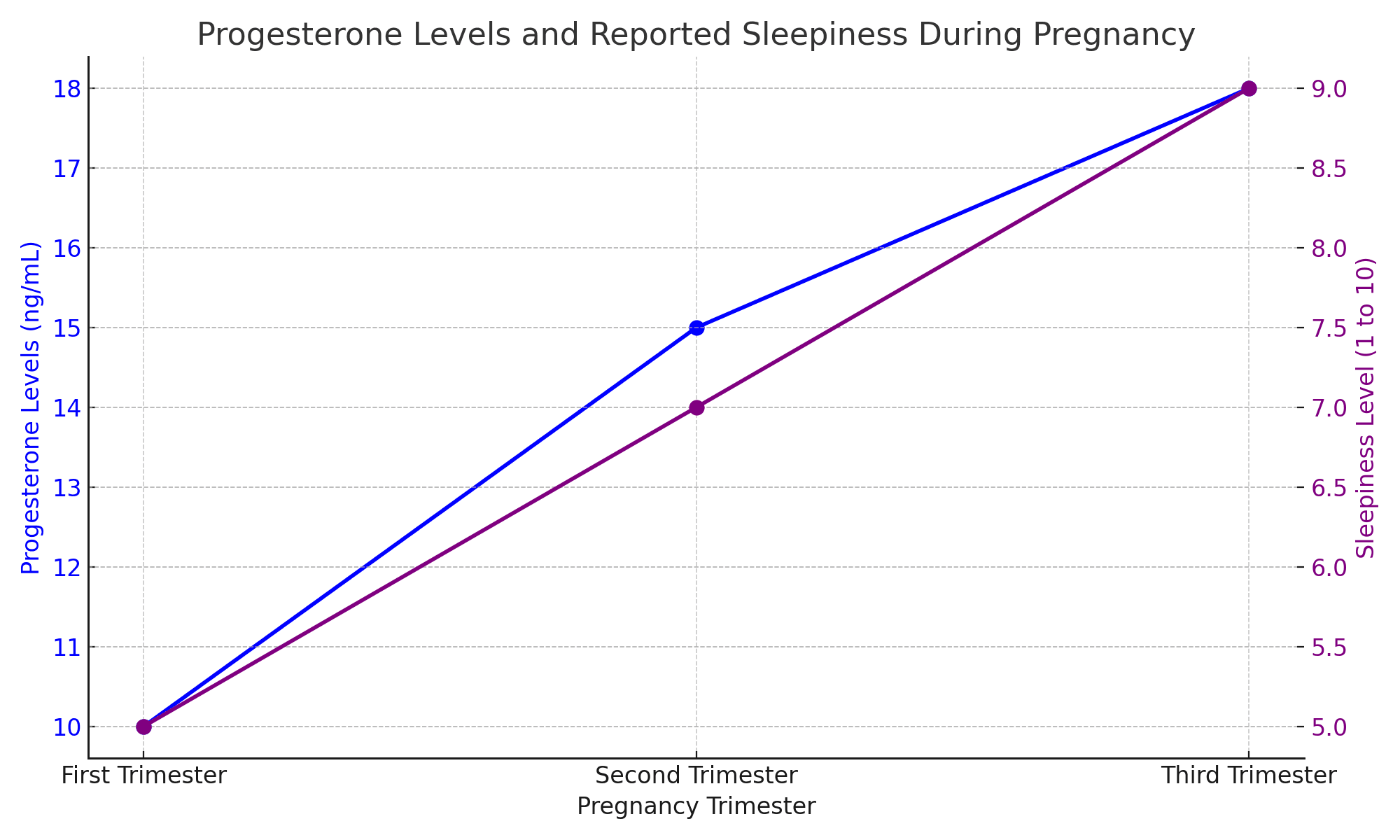Pregnancy brings about a world of changes—excitement, anticipation, and sometimes, unexpected challenges. For many expecting mothers, losing sleep during pregnancy is one of the most surprising difficulties. Whether it’s due to shifting hormones, physical discomfort, or the anticipation of becoming a parent, sleepless nights can quickly become all too familiar. Understanding the unique reasons behind sleep struggles during pregnancy can help you find relief and rest when you need it most.
Physical Changes and Sleep Disruptions.
As your body changes to accommodate your growing baby, you’ll likely notice certain physical shifts that impact sleep. These changes can come on suddenly, and it’s easy to overlook them as potential causes for poor sleep quality. Let’s dive into some of the common physical factors that might be affecting your rest.
1. Heartburn and Acid Reflux

Heartburn and acid reflux can turn restful nights into uncomfortable hours of interrupted sleep. During pregnancy, hormonal shifts relax the valve between your stomach and esophagus, allowing stomach acid to backflow, particularly when lying down. On top of that, your growing baby pushes against your stomach, amplifying these symptoms.
Tips for Managing Heartburn:
- Sleep on your left side to reduce acid reflux episodes.
- Avoid spicy, acidic, or fried foods close to bedtime.
- Consider using an extra pillow to elevate your upper body, reducing acid flow.
2. Restless Legs Syndrome (RLS)
Restless Legs Syndrome, or RLS, is an often misunderstood condition where your legs feel uncomfortable, leading to an overwhelming urge to move them, especially at night. RLS is commonly linked to pregnancy, and some studies suggest it might be due to iron or folic acid deficiency.
Managing RLS:
- Take time to stretch your legs before bed or consider prenatal yoga for relaxation.
- Try a warm bath or gentle leg massage to calm restless sensations.
- If RLS becomes severe, consult your healthcare provider for personalized recommendations.
3. Frequent Urination
With your baby pressing against your bladder, it’s no surprise that trips to the bathroom can increase as pregnancy progresses. This frequent urination, while entirely normal, is one of the primary reasons why you may find it hard to stay asleep.
Reducing Nighttime Bathroom Visits:
- Limit fluids an hour or two before bed but stay hydrated during the day.
- Practice pelvic floor exercises, which may help reduce bladder pressure.
Emotional and Psychological Factors.
Pregnancy brings a rollercoaster of emotions, and while the anticipation of meeting your baby is thrilling, there’s also anxiety that comes with this major life change. Anxiety can be an unexpected cause of sleeplessness, and it’s helpful to address these concerns head-on.
4. Anxiety and Worries About the Baby’s Health

It’s natural to worry about your baby’s health, your new responsibilities, and how life will change post-pregnancy. However, this anxiety can disrupt your sleep if you’re lying awake thinking about every potential scenario.
Tips for Easing Pregnancy-Related Anxiety:
- Journaling can help get your thoughts out of your head and onto paper, providing relief.
- Meditation and deep-breathing exercises before bed can encourage calmness and relaxation.
- Share your thoughts with your partner, a friend, or a support group for emotional support.
5. Anticipatory Stress and Nesting Urges
The urge to “nest” often intensifies as the due date nears. You might feel driven to prepare the nursery, clean the house, or check off an endless to-do list. While productive, this need to prepare can keep your mind active and prevent relaxation at night.
Dealing with Nesting Stress:
- Set aside a dedicated time during the day to organize and plan, letting you wind down in the evening.
- Prioritize your tasks, focusing on what’s essential, and avoid late-night projects.
Related : Why Can’t I Sleep While Pregnant? Here’s What Experts Say
Hormonal Shifts and Their Effect on Sleep.
Hormones play a significant role in pregnancy, often affecting your sleep in unexpected ways. Here are a few hormonal-driven issues that may be impacting your rest.

6. Progesterone Increase and Its Impact
During pregnancy, progesterone levels rise, which can make you feel drowsy during the day yet disrupt sleep at night. This “double-edged” effect means you may feel sleepy, but not necessarily well-rested.
Managing Progesterone-Related Sleepiness:
- Take short naps during the day if needed but avoid late-afternoon naps.
- Develop a consistent sleep schedule to help regulate your body’s internal clock.
7. Temperature Fluctuations
As your body’s blood flow increases, you might feel warmer, especially at night. These temperature fluctuations can make it difficult to get comfortable, leaving you to kick off blankets or search for the cool side of the pillow.
Cooling Down Tips:
- Adjust your sleep environment by using fans, light bedding, and wearing breathable sleepwear.
- Keep a glass of water nearby to stay cool and hydrated.
Environmental and Lifestyle Factors.
While your body’s changes are certainly a big factor in sleep disruption, environmental aspects can also play a role. Let’s explore some lifestyle elements that may be affecting your rest.
8. Discomfort from Sleeping Positions
Finding a comfortable sleeping position can be tricky as your pregnancy progresses. The best sleeping position is on your left side, which can improve blood flow. But staying on one side all night can lead to stiffness or discomfort.
Tips for Comfort:
- Use a pregnancy pillow to support your belly and back.
- Experiment with different pillow arrangements to find what feels best.
9. Dietary Choices Impacting Sleep
You may not realize that certain foods can impact your ability to sleep. Caffeine, sugar, and large meals close to bedtime can disrupt your sleep cycle. Even though it’s tempting to snack when you’re craving something, late-night food choices matter.
Dietary Adjustments for Better Sleep:
- Opt for light, nutrient-rich snacks like yogurt or a banana before bed.
- Avoid caffeine after lunch to give your body time to process it.
Medications and Supplements.
The vitamins and supplements you take during pregnancy are essential for you and your baby. However, some of these can have unintended side effects, including sleep disruption.
10. Prenatal Vitamins and Sleep Interference
Prenatal vitamins are packed with essential nutrients, but some of these, particularly iron, may cause stomach discomfort if taken too close to bedtime. Stomach upset can leave you tossing and turning instead of snoozing.
Suggestions for Taking Prenatal Vitamins:
- Consider taking your prenatal vitamin in the morning rather than before bed.
- If you experience nausea with prenatal vitamins, try taking them with food.
Summary of 10 Unexpected Reasons You’re Losing Sleep During Pregnancy.
Let’s recap the main points to better understand what might be affecting your sleep.
- Heartburn and Acid Reflux – Rising stomach acid due to hormonal changes.
- Restless Legs Syndrome (RLS) – A common condition linked to iron deficiency.
- Frequent Urination – Caused by increased pressure on the bladder.
- Anxiety and Worries – Concerns about the baby’s health and delivery.
- Nesting Urges and Stress – Driven by the need to prepare for the baby.
- Progesterone Increase – Hormones that affect sleep-wake patterns.
- Temperature Fluctuations – Due to increased blood flow and hormonal changes.
- Discomfort from Sleeping Positions – Challenges finding a comfortable position.
- Dietary Choices – Certain foods and drinks that impact sleep quality.
- Prenatal Vitamins – Possible digestive discomfort from iron and other minerals.
Related : 7 Pregnancy Sleep Problems No One Warns You About
FAQ Section.
Why am I losing sleep during pregnancy?
Sleep disturbances are common during pregnancy due to a combination of physical, hormonal, and emotional factors. These changes range from increased progesterone to anxiety and nesting instincts, which can all interfere with restful sleep.
How can I sleep better during pregnancy?
Try using pillows for support, limit fluid intake in the evening, manage anxiety with relaxation techniques, and consult your doctor about any medication-related sleep issues.
Conclusion.
Pregnancy is a journey filled with moments of joy and challenges, and while sleep might not always come easy, there are ways to manage each unexpected hurdle. By understanding the reasons behind your sleep disruptions and making small adjustments, you can set the stage for more restful nights. Prioritize self-care, listen to your body, and remember: good rest will support both you and your baby. Sweet dreams await as you embrace this beautiful phase.
Understanding the common causes of losing sleep during pregnancy can guide you to the right solutions, making these months a bit easier

